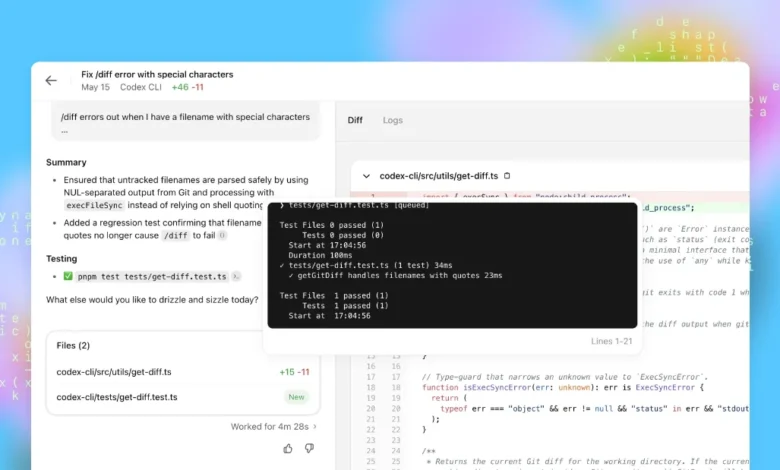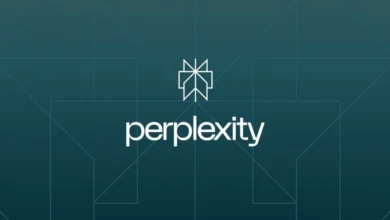OpenAI Launches Codex: A Smarter AI Coding Assistant for Developers

OpenAI has just released a powerful new tool called Codex, made especially for software developers and programmers. Codex is an AI agent, which means it’s like a virtual assistant that can help you write, fix, and improve code. It works in the cloud, so you don’t need to install anything on your computer. This new tool is powered by OpenAI’s most advanced coding model so far, called codex-1.
Starting now, Codex is available to users who subscribe to ChatGPT Pro, Team, and Enterprise plans. If you’re using ChatGPT Plus (the $20/month plan) or ChatGPT for Education, don’t worry, OpenAI says Codex will be coming to you in the future, though they haven’t given an exact date yet.
What Can Codex Do?
Codex is more than just a chatbot that talks about code, it can actually read, understand, and work with your real software projects. Developers can connect Codex to their GitHub repositories, and it can start helping right away.
Here’s what Codex can do:
-
Add new features to your code
-
Fix bugs (errors or problems in the code)
-
Run tests to make sure the code works
-
Answer questions about your codebase
-
Propose pull requests (suggested changes) for others to review
-
Perform multiple tasks at once, which saves a lot of time
Codex is especially helpful when you’re working on big projects with a lot of code. You no longer have to look through thousands of lines to find issues or add updates. Codex can help you do it fast — and it’s smart enough to follow your project’s style and structure.
How Do You Use Codex?
You can find Codex inside ChatGPT, which many developers already use. Once you open ChatGPT, look at the left-hand sidebar, and you’ll see the Codex option if you’re a Pro, Team, or Enterprise user. After that, you can link your GitHub account and allow Codex to access the repositories you want to work on.
Codex will then scan your project and start helping you out. You can also write a special file in your project called AGENTS.md. This file gives Codex instructions on how your code is organized and what it should do. This helps the AI better understand your project and follow the right steps.
What Makes Codex Different from Other AI Tools?
Codex is built on OpenAI’s codex-1 model, which is trained using real-world coding tasks. The team used a system called reinforcement learning to help the model learn how to write code like a human and follow best practices.
Codex doesn’t just throw random suggestions at you. It actually follows instructions carefully, runs tests, and keeps trying until it gets the right results. It knows how to solve problems in a realistic and professional way something most older AI tools can’t do.
Is Codex Better Than Previous Models?
Yes, Codex is much better than OpenAI’s older coding models. The new codex-1 model was tested on OpenAI’s internal software tasks, and it scored 75% accuracy. That’s better than their earlier model called o3-high, which scored 70%.
On another test called SWE-Bench Verified, Codex also performed a little better than o3-high after making a few tries. These tests show that Codex is not only smarter but also more reliable when it comes to writing and fixing real code.
What About Safety and Privacy?
One of the best things about Codex is that it’s designed with security in mind. It doesn’t run on your personal computer. Instead, everything happens in a secure, isolated container in the cloud.
While Codex is working on your code, it cannot access the internet. This means it doesn’t connect to any outside websites, APIs, or services. It only uses the code and data that you give it through GitHub. That helps keep your work private and protected.
Why Codex Matters for Developers
Codex could be a game-changer for developers of all kinds, whether you’re a solo programmer working on a personal project or part of a big software company with a large team. It can save time, reduce mistakes, and make it easier to build software that works.
For example:
-
If you’re stuck on a coding problem, Codex can help solve it.
-
If you need to add a new feature but don’t know where to start, Codex can write the first version for you.
-
If your code isn’t working, Codex can test it and fix the bug.
-
If you’re managing a team, Codex can help by preparing pull requests, suggesting changes, and answering questions about the codebase.
And because it can do many tasks at once, Codex is great for projects with tight deadlines or large amounts of work.
What’s Next?
Right now, Codex is available only to a limited group of users. But OpenAI plans to expand access over time. If you’re using ChatGPT Pro, Team, or Enterprise, you can start using Codex today. If you’re a ChatGPT Plus or Edu user, stay tuned, it should be available to you soon.
As more people use Codex, OpenAI will likely improve it even more. We may even see Codex become a regular part of how software is developed, just like how people use GitHub or version control today.
Final Thoughts
Codex is a major step forward in using AI to help with real-world software development. It’s fast, smart, and designed to work in the way developers needs, whether you’re fixing bugs, adding features, or trying to understand someone else’s code.
If you’re a developer, this is definitely a tool worth checking out. It could make your work easier, faster, and maybe even more fun. And because it runs in the cloud, you don’t need to worry about installing or maintaining anything. Just connect your GitHub, and let Codex do the heavy lifting.



